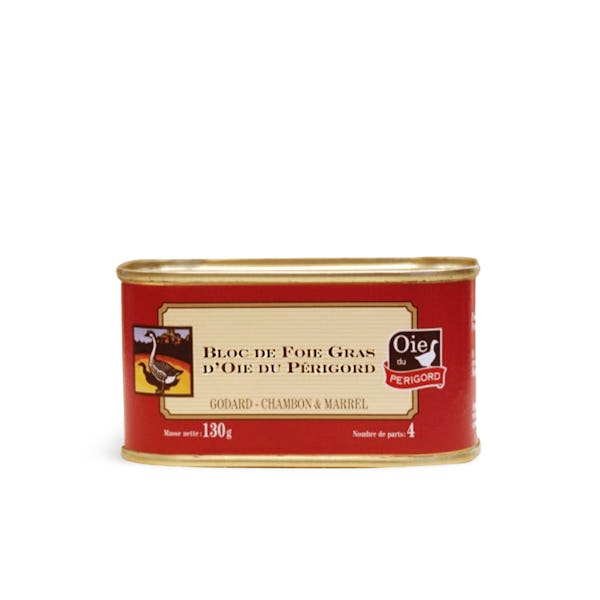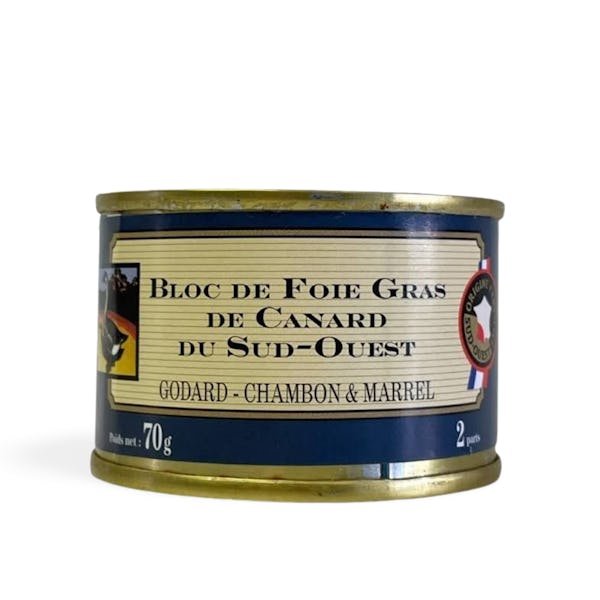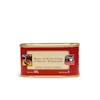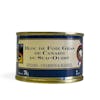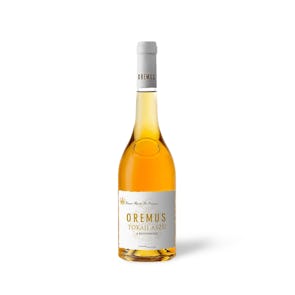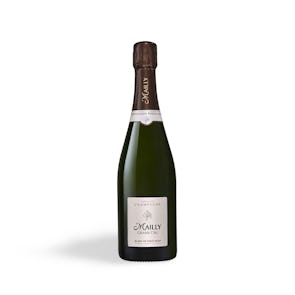(Friday Sep 19 , 2025)
For other areas, please change your delivery area at the top left of the page
PAIRS PERFECTLY WITH
We’ve been creating foie gras since 1878 at Godard-Chambon & Marrel. Salt and spices are used to preserve the blocks of goose foie gras. The buttery flesh flavor of goose foie gras is more mild than that of its duck cousin. More so than in a surprising first bite, it leaves a long-lasting aftertaste that overwhelms the senses in a multimodal gastronomic micro-journey unlike any other. Port wine was added to Godard-Chambon & Marrel’s original recipe to enhance the flavor and intensity.
As little handling as possible is preferable to preserve the texture of foie gras, use a hot knife, slice thinly into the block and lay the amount on a small piece of bread. Sprinkle with some pepper sprinkled on top if desired.
If you want to amp up the flavor even more, try some French mustard or balsamic spread on top. Instead of a sauce, try a spoonful of jam or preserves or some wine-soaked apple or pear slices for an interesting contrast in textures and flavors.
Sauternes is the traditional wine to drink with foie gras, but if you’re serving it with fruit, a crisp Pinot Grigio or Gris would work just as well. An old Bordeaux is recommended for red wine connoisseurs. Choose a champagne that is fresh and light to avoid overpowering the flavor of goose foie gras. Pear or apple cider will provide the perfect amount of acidity to balance off the mineral flavor if you’d rather not drink wine.
The Egyptians were the first to perfect the art of gavage, a method of raising fattier birds, long before the French made foie gras haute cuisine. Greeks and Romans embraced the technique and turned it into a delicacy by raising ducks and geese just for their liver. In the Renaissance, Jewish influences brought what we now know as foie gras to Louis XIV’s court, hundreds of years later. As a result, foie gras became a staple at the most prestigious dining establishments in France.
Storage Instructions
Store your tin/jar in a cool, dark, and dry pantry. Unopened, it will last up to 2 years. Once opened, consume your preserved fish/meat within one or two days and keep leftovers with the oil in a sealed container in the fridge.

